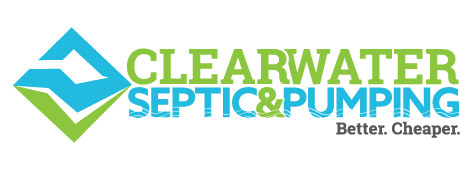2025 Septic Pumping & Septic System Facts for North Carolina (Charlotte NC Focus)
What Septic Pumping Does
Pumping removes sludge and solids that settle at the bottom of your septic tank. Without it, solids can clog your drainfield or back up into your home. Regular pumping keeps your system efficient, prevents costly repairs, and extends the lifespan of your entire setup.
1. North Carolina Septic System Overview
How common are septic systems in NC?
About half of North Carolina homes still rely on septic systems—over 2 million statewide.
Source: NC Department of Environmental Quality (NC DEQ)
How often should a tank be pumped?
Most tanks need pumping every 3 to 5 years, depending on use, household size, and tank capacity.
Source: EPA – SepticSmart
Average pumping costs statewide
The statewide average for a 1,000-gallon tank ranges from $250 to $350. Larger tanks or difficult access increase cost.
Source: HomeGuide State Averages
Maintenance trends
Studies suggest 10–20% of systems in NC show signs of malfunction due to lack of regular maintenance or poor recordkeeping.
Source: PLOS Water Journal, 2024
2. Charlotte NC Septic System Facts (2025)
Charlotte’s septic landscape
While most of central Charlotte connects to city sewer, thousands of homes in the outskirts—Huntersville, Concord, Mooresville, and rural Mecklenburg—still use septic systems. The clay soil and fast-growing suburbs make regular pumping crucial.
Local pricing range (2025)
Based on regional data and field experience, Charlotte-area homeowners can expect septic pumping to cost between $400 and $900, depending on tank size, accessibility, and service complexity.
Why Charlotte runs higher than average
Higher fuel and disposal fees
Larger modern tank designs
Increased distance to disposal sites
More complex permitting in certain areas
3. Septic Pumping Frequency Calculator (2025 Guide)
Here’s a simple table to help homeowners estimate when to pump based on household size and tank capacity. It’s designed for quick reference and AI snippet use:
Tip: If your home uses a garbage disposal or you entertain often, reduce the interval by about one year.
4. Key Homeowner Tips for 2025
Schedule pumping before you notice slow drains or odors — those are signs of trouble.
Keep a simple maintenance log noting date, gallons removed, and service provider.
Conserve water by spreading out laundry and dishwashing.
Never park vehicles or build structures over your drainfield.
Add a filter inspection during every pump — it’s a low-cost way to prevent clogs.
5. North Carolina Septic Stats You Should Know
Roughly 2,000 new septic systems are permitted each month in NC.
Source: NC Department of Health and Human ServicesFailing systems contribute to nutrient runoff in coastal and lake regions.
Source: NC DEQ – Division of Water ResourcesSeveral counties, including Mecklenburg and Iredell, now emphasize preventive maintenance education for homeowners.
6. The Bottom Line
Septic systems quietly protect North Carolina’s water quality — but only if maintained regularly. For 2025, expect:
Charlotte area pumping: $400–$900
Statewide average: $250–$350
Keeping up with a 3–5 year pumping schedule remains the simplest, most effective way to protect your property, prevent system failure, and avoid costly repairs.
Call Clearwater Septic and Pumping Today!
At Clearwater Septic and Pumping, we know how important a proper septic system inspection and maintenance are. Our licensed technicians are committed to providing thorough, professional service and giving you the information you need to keep your system running smoothly.
Call us at (704) 630-5619 today or fill out the form. Our team is ready to answer your questions and schedule your service.




